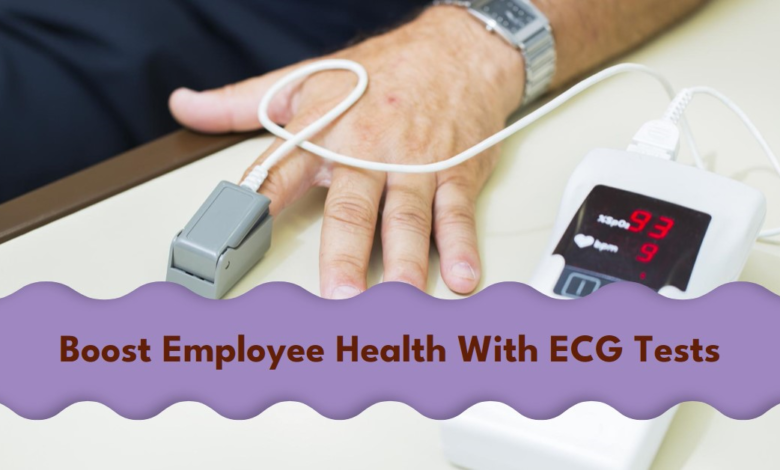Treadmill Test for Heart Health: Predict Future Risk

For many, the idea of a treadmill conjures up images of gym memberships and weight loss goals. But this familiar piece of equipment plays a vital role in diagnosing and predicting cardiovascular disease, the leading cause of death globally according to the World Health Organization (WHO). A treadmill test, also known as an exercise stress test (EST), goes beyond measuring fitness and delves into the health of your heart.
This article explores the power of treadmill tests in predicting future cardiovascular events, their reliability, and how they can empower you to take charge of your heart health.
Decoding the Test: How Treadmill Tests Work
A treadmill test is a non-invasive procedure that assesses your heart’s function under physical stress. During the test, you’ll walk or run on a motorized treadmill with increasing incline and speed. Doctors monitor your heart rhythm using an electrocardiogram (ECG) which records electrical activity. They may also measure your blood pressure throughout the test.
The goal is to observe your heart’s response to exertion. An abnormal test result might indicate reduced blood flow to the heart muscle due to narrowed arteries (coronary artery disease) or other heart problems.
Here’s a breakdown of what an abnormal test result might reveal:
- Chest pain: Angina, or chest pain, during exercise can be a sign of reduced blood flow to the heart.
- Abnormal ECG changes: The ECG might show specific patterns that suggest oxygen deprivation in the heart muscle.
- Poor exercise tolerance: Inability to reach expected exercise levels can indicate an underlying heart condition.
While abnormal results raise a red flag, a normal test doesn’t guarantee perfect heart health. However, it provides valuable information for your doctor to assess your overall cardiovascular risk.
Predictive Power: How Accurate are Treadmill Tests?
The accuracy of a treadmill test in predicting future cardiac events depends on several factors, including your age, gender, and existing risk factors. Studies suggest that treadmill tests are more accurate in men than women, with a higher positive predictive value (predicting true disease when a test is positive). Here’s a glimpse into the data:
- A 2017 study published in the Journal of the American Heart Association found that in men with suspected coronary artery disease (CAD), a positive treadmill test predicted a higher risk of major adverse cardiac events (MACE) such as heart attack, stroke, or cardiovascular death within two years.
- The same study also showed that a negative treadmill test in men with a low pre-test risk of CAD had a high negative predictive value, meaning they were unlikely to experience MACE within the following two years.
However, it’s important to remember that these are general trends. Individual results should be interpreted by your doctor in the context of your complete medical history and risk profile.
Beyond the Test: Optimizing Your Heart Health
A treadmill test is a valuable tool, but it’s just one piece of the puzzle. Here are some key strategies to optimize your heart health:
- Maintain a healthy weight: Obesity is a significant risk factor for heart disease.
- Eat a heart-healthy diet: Focus on fruits, vegetables, whole grains, and lean protein while limiting unhealthy fats, added sugar, and processed foods.
- Exercise regularly: Aim for at least 150 minutes of moderate-intensity exercise or 75 minutes of vigorous-intensity exercise per week.
- Manage stress: Chronic stress can contribute to heart problems. Explore relaxation techniques like yoga or meditation.
- Don’t smoke: Smoking is a major risk factor for heart disease. Quitting smoking is one of the best things you can do for your heart health.
- Manage existing conditions: If you have conditions like diabetes or high blood pressure, work with your doctor to keep them under control.
Additionally, consider a comprehensive heart health assessment, which might include tests like cholesterol and blood pressure checks, to create a holistic picture of your cardiovascular risk.
FAQs: Treadmill Tests Demystified
Here are some commonly asked questions about treadmill tests:
- Who should get a treadmill test? Your doctor will recommend a treadmill test based on your individual risk factors and symptoms.
- Are there any risks associated with a treadmill test? Treadmill tests are generally safe, but there’s a small risk of complications like dizziness or chest pain.
- What happens if my treadmill test is abnormal? Your doctor will discuss further tests and treatment options based on your specific results.
- Can I prepare for a treadmill test? Yes, it’s recommended to wear comfortable clothing and shoes suitable for exercise. Avoid eating a heavy meal beforehand and inform your doctor of any medications you’re taking.
Conclusion
A treadmill test offers a valuable window into your heart’s health under stress. While it’s not a foolproof predictor of future events, it provides crucial information for your doctor to assess your cardiovascular risk and guide preventive measures. Combined with a healthy lifestyle and regular checkups, treadmill tests can empower you to take charge of your heart health and live a longer, healthier life.
Remember, prevention is key when it comes to heart disease. A proactive approach with early detection and intervention can significantly improve your cardiovascular health. Talk to your doctor today to discuss if a treadmill test is right for you.
Also know TMT Test Risks: Safety & What to Expect.



